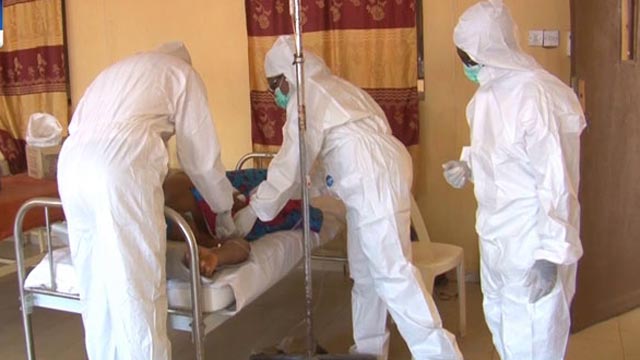A Dutch doctor has died after contracting Lassa fever during his stay in Sierra Leone.
He was flown back to his home country but died in hospital, according to local media reporting.
The doctor whose name was not disclosed was reportedly evacuated home this month after being infected in the northern town of Masanga.
He showed symptoms of the viral haemorrhagic illness after operating on a pregnant woman.
Sierra Leone’s Health Ministry said in a statement that the deceased doctor showed symptoms of Lassa fever after performing a Caesarean section.
“He developed signs of fever, headache, and general malaise… and was treated for typhoid, malaria and influenza but symptoms persisted,” it said.
He was then airlifted to the Netherlands where he was diagnosed with the disease,” the statement revealed.
A second Dutch doctor who was also evacuated is being treated for the disease, according to Dutch health minister, Bruno Bruins.
Bruins told AFP that the first doctor died while being treated in “strict isolation” at a hospital in the city of Leiden.
Lassa fever belongs to the same family as Marburg and Ebola. These are two deadly viruses that lead to infections with fever, vomiting and in worst-case scenarios, haemorrhagic bleeding.
It is endemic West Africa and has been recently reported in northern and southern parts of Sierra Leone.
The disease got its name from the town of Lassa in northern Nigeria where it was first identified in 1969.
It spreads through contact with food or household items contaminated with rats’ urine or faeces or after coming into direct contact with the bodily fluids of an infected person.
It can be prevented by enhanced hygiene and avoidance of all contact with rats.
Source: Africafeeds.com


